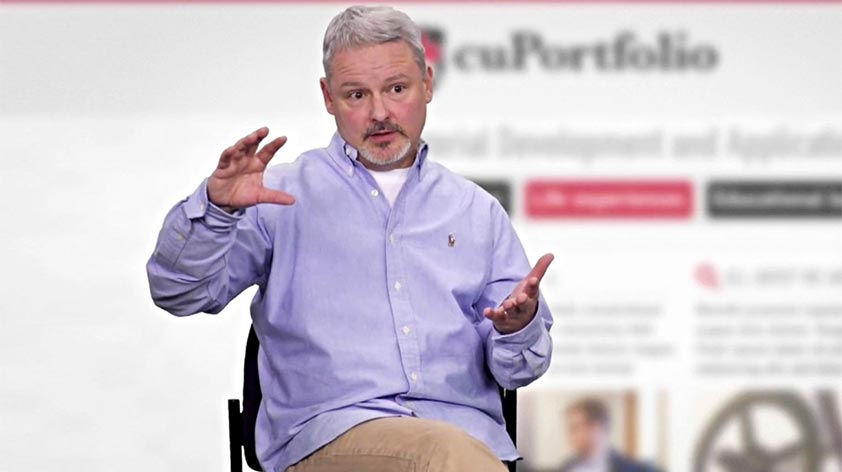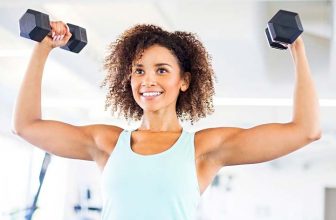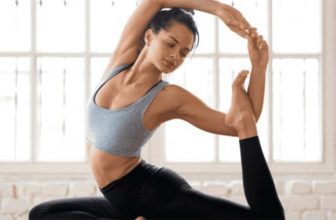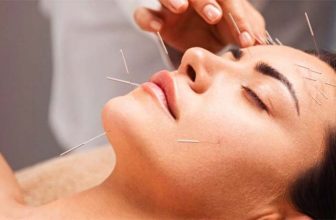
Matthew Sorley is an instructor at Carleton University’s Psychology Department (in Canada’s capital, Ottawa) where he teaches; Introduction to Psychology, Social Psychology, and Sport and Performance Psychology. We would like to thank the ‘Carleton’s Coffee with a Prof’ program for making this interview possible. So without further ado, please continue on for our exclusive Interview with Sports Psychologist: Professor Matthew Sorley!
Hi Matthew. Nice to have you with us. So, to start off, our mission is to help a billion people reach 100 years of age happily and healthily – what are your thoughts on that?
It’s certainly a noble goal. When you think about the most common causes of preventable mortality, a lack of physical activity is right up there. We should not only think about how we can extend our lifespan, but how to improve the quality of our psychological and physical health along the way.
Being physically active has all sorts of benefits for us psychologically, and from a cognitive perspective, there are processes functioning at a more efficient level, such as having effects on our memory, learning, problem-solving, and reasoning.
People don’t often think about those; they often think about being physically active because they want to enhance their cardio or tone up, or whatever it happens to be. I’m a fan of anything that aims to get people to be more physically active because of these benefits.
Background
What made you want to start out in sports psychology?
I grew up liking sports and initially it was a way to connect with my parents. My mom would listen to baseball games on the radio and the sounds of the game were reverberating around the house. With my dad it was about going to CFL games. This kind of thing is true for a lot of people because there’s some sort of connection that develops.
An Interest in High Performance People…
There was also a little bit of sport participation here and there, which gave me confidence in other areas of my life that I didn’t have.
From the beginning I’ve had a big interest in high performance and learning about people who are accomplishing their goals in areas that aren’t just sports, such as stand-up comedians and business leaders. So, it’s a combination of these forces.
From your interest in studying success, what do all of these high performers have in common?
They have commitment and they’re not afraid of the practice elements. They’re willing to put in the hours and hours to get better, and they actively reflect and think about how they can improve, using a bunch of different strategies to facilitate that.
With athletes specifically, most of them start with genetic advantages, but that’s not enough; there are still things like eating, sleeping, money, coaches, facilities, and opportunities that help get them to where they are.
Mindset and Goal Setting
Often people get caught up in other things in life like school or work, and family, while sports and physical activity get left behind. How can you convince someone that engaging in physical activity should be just as much of a priority as things like eating and sleeping?
That’s something that’s very hard to do and there’s a lot of evidence to suggest that it starts at home. If you grew up in an environment where your family was out cross-country skiing or taking walks, those things can help nudge you to have more physically active lifestyles because it’s what you’re used to. In some ways it becomes a bit of a reflex that we’ve got to train.
One of the things that we have to do is to spread the message that people can deal with barriers, from “I don’t have time” and “I don’t know what to do”, to trying something that didn’t work, or having a disability or not enough money for a gym membership.
People don’t Realize that Physical Activity Actually Adds to their Energy!
For example, when an individual says that they don’t have time, maybe what they really need is time-management assistance to try to carve out 30 minutes from their day to go for a walk. There’s also a group of people who think that physical activity means that they have to lift weights or run on a treadmill, but there are so many other things that count as exercise!
People also don’t realize that a lot of things have to do with stress management. They talk about how they don’t have enough energy, but they don’t realize that physical activity actually adds to their energy.
Focusing on the Activities that Motivate You
Another challenge is helping people find something that they find engaging and intrinsically motivating. Often people will jump into a health club and won’t go after six months because what they’re doing there isn’t intrinsically motivating.
There’s a lot of boredom, and the repetition can get dull, so you have to find something you like, whether that’s solo or in a group, or free or expensive. And if you try something and it doesn’t work, you don’t just stop, you look on for the next thing!
How Can You Turn Physical Activity into a Habit?
You have to find ways to structure your life. There’s a lot of talk about implementation of intentions, which is the idea that there’s something we want to accomplish, but we don’t structure our lives to achieve those accomplishments. Then, when it becomes part of a routine, you can translate a general intention into a reflexive behaviour.
There’s a lot of research trying to encourage health changes, adopt healthy lifestyles, and deal with relapses. Currently there’s research on getting people to make basic risk assessments. For example, what are my consequences if I continue my current trajectory of a sedentary lifestyle? The issue here is that people don’t personalize that and think that it will only happen to other people and not themselves.
Everyone Needs a Plan for Physical Exercise
See this inspiring Ed Mylett video interview featuring Michael Jordan’s Trainer, Tim Grover below!
Then you have to help people develop a plan, tell them what their options are, and identify additional roadblocks to make adjustments to their goal setting. If you don’t have a goal, it’s like trying to reach somewhere you’ve never been without a map, and that can derail physical activity programs.
Some people also won’t adjust their goals. You want to achieve early success, so it’s better to err on the side of achievability and then increase the challenge, rather than starting with something that is high intensity.
Keeping with the theme of goal setting, when it comes to engaging in sports, is enjoyment or having a goal the best recipe for success?
Ideally you have both, but if you have to pick one then it would be enjoyment because you’re trying to effect a change and then maintain it. If someone likes what they’re doing then you don’t have to worry much about motivation. For example, at the beginning of Covid I was sedentary and then I discovered pickleball! And I loved it, so no one had to tell me to do it or what the benefits were.
Speaking of COVID, how have you seen athletes best pivot when they are restricted in what they want to do?
For any high level athlete it has been very disruptive because they are creatures of habit and have developed routines over time. Now they need to find alternative needs and make adjustments. But they do this on a regular basis. For instance, if they get injured they have to make adjustments, and the best of the best are able to do this.
Since athletes haven’t been able to access the facilities they usually would, they’ve devoted a lot more time to mental practice, such as using imagery and crafting certain situations in their minds to work through multiple situations. The key is that they were asking themselves how they could still use their time in an efficient manner.
Also with the pandemic, people have been out doing other things, such as going for walks or bike rides, which made them realize that they no longer needed their gym membership.
Since we’ve spent some time discussing behaviour, what about the brain? Are there any differences in those who are physically active?
One of the things that we know is that physical activity can help build resilience to a wide range of negative psychological outcomes. For example, if an individual continues to engage in physical activity while having the symptoms of depression, it can reduce the symptoms, as well as help ward off some of that depressive severity.
It’s also not limited to psychopathology. If we think about anything that we engage with that is intrinsically motivating, there’s a reward there for us through the mesolimbic dopamine pathway.
When we do something that we enjoy there are all kinds of networks that are activated, which have a positive effect. If we like what we’re doing, the activation of these reward pathways helps bring us back to do things again and again. It’s almost like we’re addicted to the activity because we want that fix, that reward, which is good as long as it’s not extreme.
Insights & Reflections
On the topic of reward, what do you think are the pros and cons of social media platforms like Instagram? How can we use it to nudge sedentary people to become more physically active?
Social media is very complicated, it can either encourage or discourage. Often people are presenting unrealistic accounts and images of what’s going on. It can be useful if it’s bringing people together to engage in physical activity, such as to arrange walks or whatever the activity. But if it’s just being used to brag about accomplishments, well that’s iffy.
Also, if people want to be inspired by something they have to see a bit of themselves in the story. When you look at a model you have to look at the characteristics of the individual delivering the message, and social media can be powerful in that regard, if you have the right person and the right message.
How do You think the Future of Sports will Evolve in the Next 3-5 Years?
I’m optimistic about it overall because it’s in our best interests to be physically active. It’s counter to our survival and ability to thrive physically and psychologically when we adopt a sedentary lifestyle. So, if we continue down this path we might not live very long, and the quality of life will decline. One of the things we’ve seen lately is increased levels of activity across different age levels, specifically in older people, which is a good thing!
Professor Sorley’s Message for Keep Fit Kingdom Followers & Students
Finally, what special message would you like to share with keep fit kingdom readers and your students and followers around the world right now?
There are very few things in life that we experience collectively now. When we think about entertainment, people are watching different things at different times, and there aren’t many things besides politics and the weather that we can get together to talk about and experience in the moment.
When you think about sports, if you watch them in real time you can have a few million people jumping up and down or being crushed at the same time. For those who suggest that sports shouldn’t matter, I don’t know, I think this possibility of sharing human experience has value and contributes to our humanity.
Thank you, Professor Sorley, for your kind participation in this interview. We hope it gives our readers a unique perspective on sports and the mind and how to get more out of it! We wish you every success in 2022.
Thank you!
We hope you liked this interview with Carleton University’s Professor Matthew Sorley! What do you think is the key to optimum sports or any other types of high performance? Let us know in the comments below and join in the conversation on Facebook, Twitter & Instagram!
If you’re interested in health and wellness, and want more convincing reasons of why you must start taking control of yours, check out the book: How Squats Can Change Your Life (with a foreword by WWE Hall of Fame wrestler, Rob Van Dam) our other, compelling, exclusive interviews, and sign up for our FREE, 7-day energy-boosting technique, while you still can!









